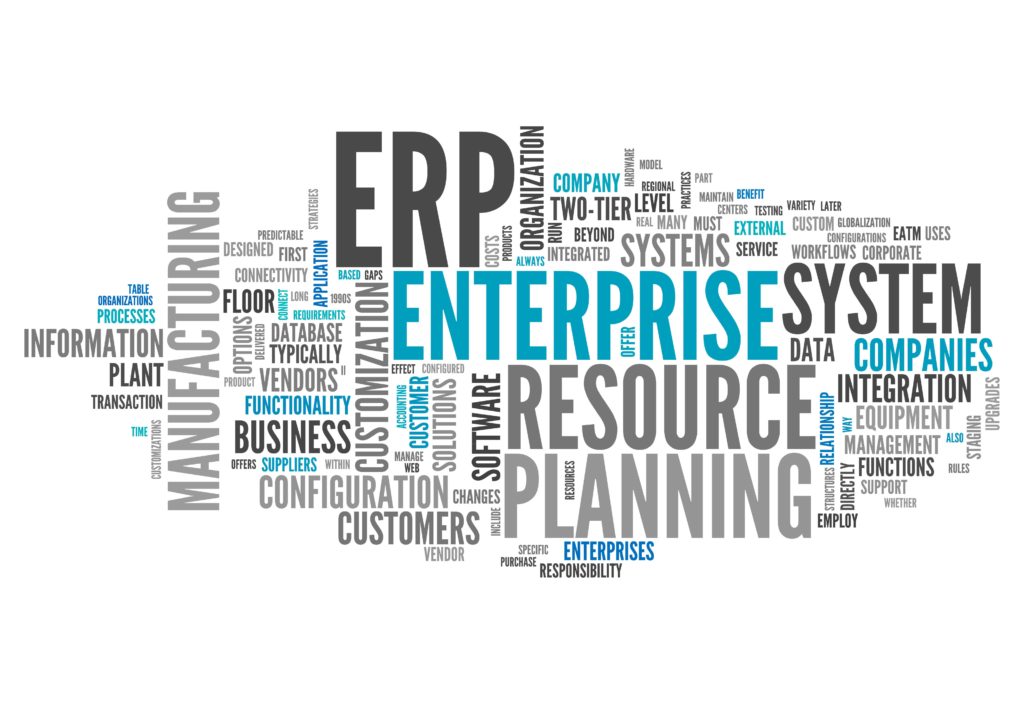
Business leaders hear a lot about enterprise resource planning (ERP) systems. This type of enterprise software brings together previously segregated departments using a single, integrated system to support the various functions and business processes performed by your business. There are many benefits to be gained by moving to an ERP solution that’s well matched to your particular requirements, including improved productivity, easier and more informative reporting, increased cost efficiencies, improved inventory management, and enhanced security.
Below is a breakdown of the main 5 benefits of implementing an ERP system in your business.
1. Increased Productivity
Because it integrates various processes and organizes information in a single, centralized database, an ERP system facilitates the sharing of information throughout the organization. It eliminates data duplication and reduces time spent manually entering data. If you have other systems in place, an ERP system should be able to integrate with these systems seamlessly, creating an all-in-one software solution.
Catering to today’s workforce, which expects mobility, is another way ERP solutions offer modern convenience. With increased mobility comes increased productivity. Cloud-based ERP software greatly eases mobility, often allowing users to dispense with the need to use a virtual private network (VPN). A large number of vendors offer mobility apps, making it easier for users to connect while off-site or on the production floor. Typically, any Android, iOS, or Windows smartphone or tablet can be used.
2. Enhanced Reporting Capability
There’s no doubt that ERP and other enterprise software improves business reporting. Given the ease of accessibility of real-time data that is stored in a central location and instantly shared between departments, it’s easier to access up-to-date information for decision-making purposes.
Because an ERP system automatically consolidates data in a central database, once it is configured during implementation, it will generate the necessary reports automatically. In addition, for organizations that must produce compliance reports to meet regulatory standards, such reports can be generated in just minutes.
3. Cost Reduction
As opposed to maintaining legacy systems, businesses can save money and see a greater return on investment (ROI) on the amount spent on IT and software by implementing an ERP system that is well aligned to their particular requirements. A modern ERP system will better manage your inventory, make more efficient use of data, and add efficiency to virtually every system underpinning your business.
An ERP system can have a positive impact on you business’ budget or revenues by improving how well you track costs and by analyzing patterns in your business data, which can in turn lead to discovering new ways to increase your revenue.
4. Improved Inventory Management
One of the most common challenges faced by businesses related to inventory management. Most companies wish for greater “visibility”, which refers to the ability to access current inventory numbers and the status of products. Once management and customer service teams can access real-time data, they have the information they need to make important ordering and delivery decisions that will keep the business running smoothly and customers happy.
For retail businesses, having a point-of-sale (POS) system in multiple locations makes keeping up with inventory easy and seamless. Being overstocked or understocked is expensive. Having all the numbers you need at your fingertips means you can better analyze your inventory stream to determine the best inventory management practices.
5. Better Security
Security is a major concern for most organizations. Sensitive customer information should be accessible only when necessary. Sophisticated user-permission features are one of the many benefits of ERP systems. An ERP solution eliminates unsecured spreadsheets and other documents that are commonly used to store data in the absence of ERP software. Because an ERP system uses data encryption and also makes data available according to a user’s role, moving to an ERP system can reduce the risk of serious lapses in security.
Since many data breaches originate, often inadvertently, with employees rather than outside hackers, the greater control of user access an ERP system can provide is important. An ERP system is capable of assigning different levels of permissions to different end users, ensuring the users can access only the information they need to see to perform their job.
ERP systems offer many benefits for companies looking to realize the sort of improvements in productivity, efficiency, and cost savings they need to remain competitive. Business executives seeking to enhance their organization’s competitiveness and profitability should seriously consider moving to an ERP system.
Stay Connect our Tech Blog & You can also write for us technology
Also Read – SAP Course: Overview, Eligibility, Duration and Fee structure